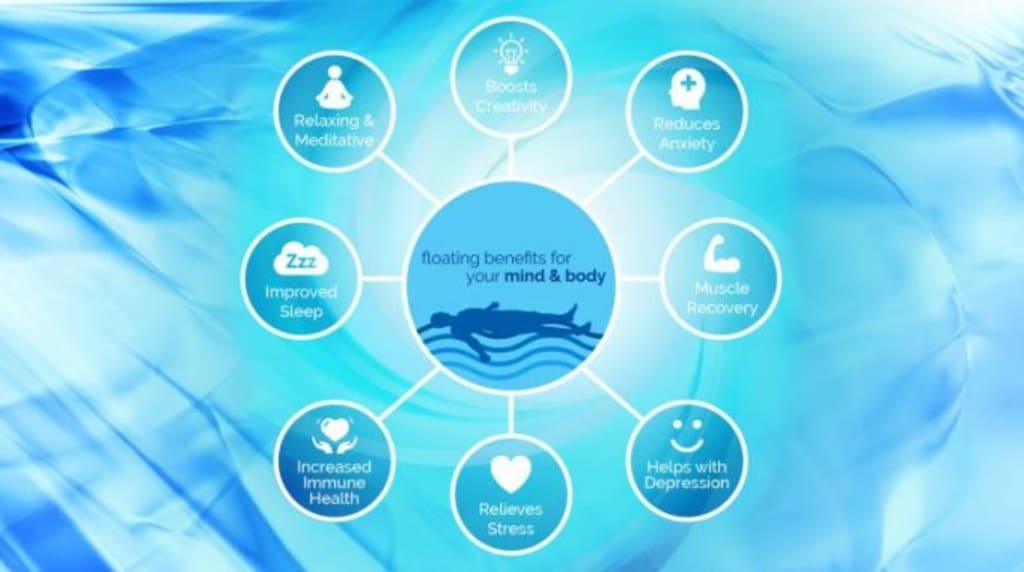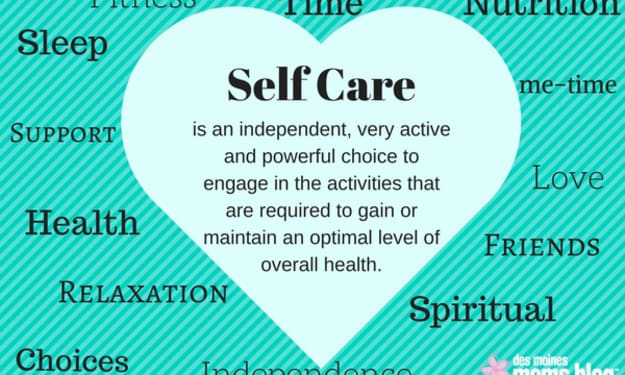
I heard a testimonial from a college student who had been on 13 different medications for anxiety, depression, and pain. She dropped out of college because she felt the pressure to thrive and become successful. Unfortunately, the medication became too much for her to handle and as a result she dropped out. So, she tried a new form of therapy called float therapy. Now, she is off ALL the medication and is back in college. So, I decided to do a little research and give it a try.
Water can be very relaxing and soothing for sore muscles. It amazes me how much power water has at relieving physical and psychological tension. Float therapy has the same effect. The water is mixed with the relaxing power of magnesium and takes place in a restricted environment which also helps relaxation.
The characteristics of float therapy make it great to ease physical pain and help the body recover from injury and pain-related illness. Since float therapy occurs in a restricted environment, there are not external stimuli to distract the individual. It eliminates the internal body stress. Floating appears to eliminate the "fight or flight" response and moves the individual into "rest and recovery."
Pain can occur at any age (although it is more common as get older). Unfortunately, pain can become so severe that it can disrupt sleep patterns and quality of sleep. Stress and pain can occur together, which makes for an even more troubled and disrupted sleep. The cycle of poor sleep, stress, and pain can also lead to individuals seeking out prescription medication or self-medicating with caffeine, alcohol, or drugs. Research (although still new) has shown that float therapy can relieve the stress-related muscle pain, anxiety, and depression.
Float therapy has also been shown to help those with fibromyalgia. Individuals who have gone through float therapy about three times have shown significant improvement in movement, reduction in stress, and sadness. Fibromyalgia patients also experienced increased energy, relaxation, and overall a positive well-being.
Arthritis can be painful and come in many different forms. In most cases arthritis is accompanied by sleep issues. Float therapy has been shown to benefit two of the most common types of arthritis. Rheumatoid arthritis is an autoimmune disorder. In other words, joint pain derives from the immune system’s attack on its own tissues. Osteoarthritis is caused by wearing down of cartilage that protects the bone at the joints.
Both result in pain, stiffness, inflammation, and restriction on mobility. They also lead to difficulty sleeping and daytime fatigue. Studies show that float therapy is effective in treating pain, increasing strength and range of motion in people with rheumatoid arthritis. Float therapy has also been shown to decrease pain and improve functioning in individuals with osteoarthritis.
New research has also shown that float therapy can help the body heal from extensive exercise. Float therapy may help regular exercisers, recreational, and professional athletes recover more quickly, and experience less pain. Playing sports or just exercising are influenced by sleep. The more sleep athletes get, the better they preform. Therefore, less pain means better rest.
While float therapy has its physical benefits, it can also have cognitive and creative benefits. Regular floaters usually discuss floating as a powerful focusing effect. Research suggests that floating increases relaxation and relieves tension. Researchers suspect that the increase in relaxation floaters experience is the reason why they have a boost in creativity.
I recommend float therapy for individuals who want to relax and experience chronic or acute pain. While it can be scary, you can start with small steps. Closing the lid scares me, so I keep it open. You can have music playing or complete silence and focus on your heartbeat and breathing. There are many different ways to experience floating, but it is a great alternative tool instead of medications. Plus, it makes your hair feel great!
About the Creator
Enjoyed the story? Support the Creator.
Subscribe for free to receive all their stories in your feed. You could also pledge your support or give them a one-off tip, letting them know you appreciate their work.






Comments
There are no comments for this story
Be the first to respond and start the conversation.